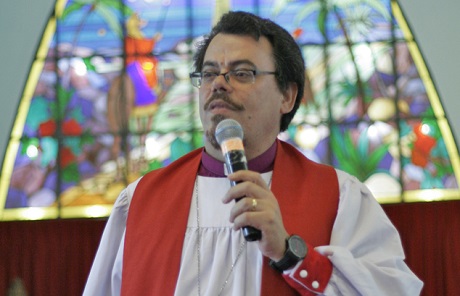Anglican Communion News Service reports on the work of Archbishop Francisco De Assis Da Silva following the news of an impeachment trial for President Dilma Rousseff. He has been a leading voice fighting corruption and speaking out on those who would subvert the democratic life of Brazil:
The Primate of Brazil has criticised the suspension of President Dilma Rousseff and the imposition of Vice-President Michel Temer pending Rousseff’s impeachment trial; and warned of a growing social movement to “reclaim” the country’s democracy. The Most Revd Francisco De Assis Da Silva had previously criticised the impeachment process. Today he described the process as “a show of sad cynicism”.
Brazil’s Senate – the upper house of the National Congress of Brazil – voted to accept the impeachment proceedings and suspend Present Rousseff on 12 May. It now has six months to decide whether to find her guilty, in which case Temer will assume the role of President for the completion of the term; or not guilty, in which case she will be restored to office.
Writing on his Reflections of a Thinking Bishop blog, Archbishop da Silva, Bishop of South-Western Brazil and leader of the Igreja Episcopal Anglicana do Brasil (Episcopal Anglican Church of Brazil), said that the National Congress, with the support of the judiciary, had disrespecting the rule of law.
The Archbishop has also spoken out on the offshore banking crisis
After revelations about offshore financial activities in the so-called Panama Papers, Mr Cameron last month announced that the overseas territories and crown dependencies – like the British Virgin Islands and Jersey – had agreed to provide UK tax and law enforcement agencies with full access to company ownership details.
But the faith leaders, including Archbishop Francisco de Assis da Silva, the Primate of the Anglican Church of Brazil and The Very Revd Dr David Ison, Dean of St Paul’s Cathedral, call on him to go further.
“We see how corruption stunts development and leads to huge financial outflows from the developing world,” they write.

